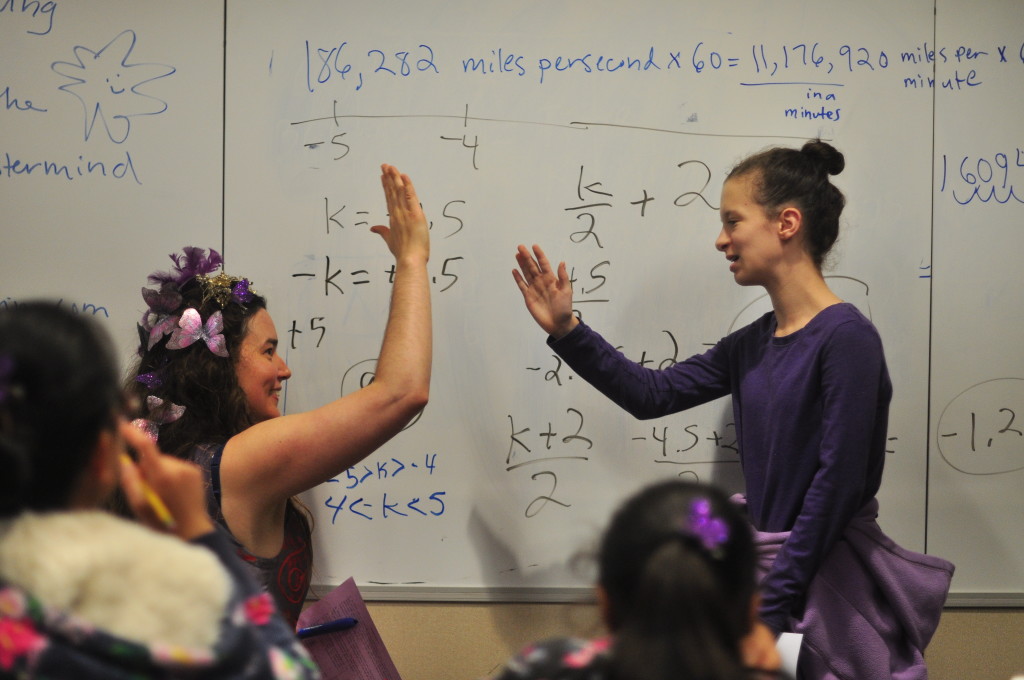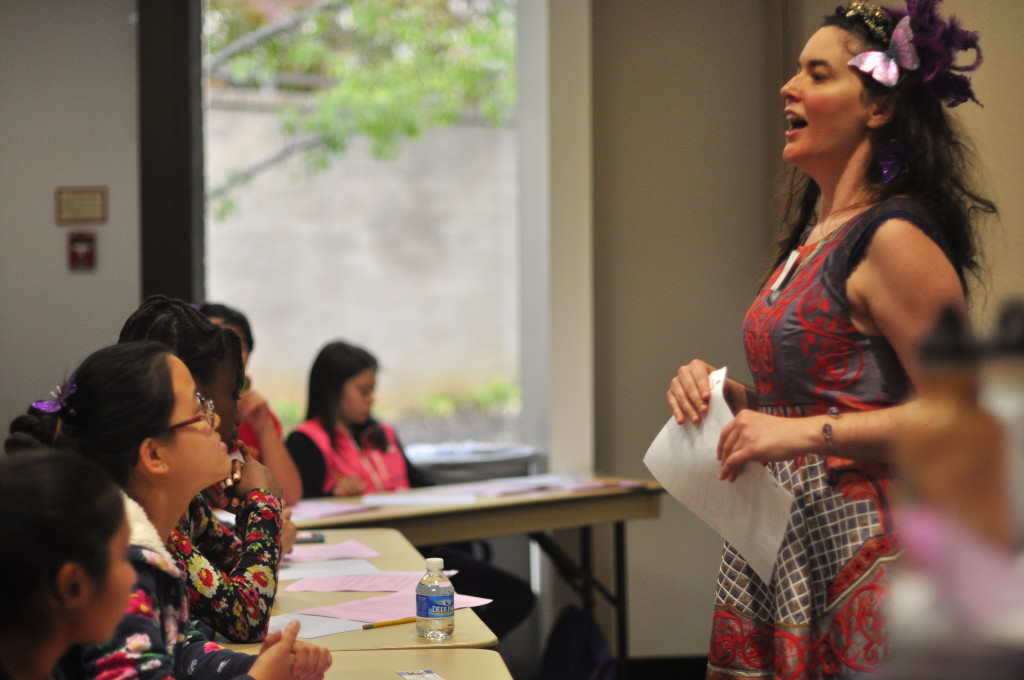My student who loves to sing and dance about math boldly announced to me during our tutoring session, “I feel like Albert Einstein!”
Ok, so let’s back up for a second. How did this happen?
When she told me she felt like Albert Einstein, I told her, “I think this is really important. Let’s look at this together for a minute.”
What was the process that led to this lightbulb moment?
Here’s the breakdown.
We were working on a problem that combined multiple circles shapes to make a complicated-looking shape that LOOKED super scary and weird – but was actually just a bunch of circles combined in an innovative way.
When my student first saw the problem, her first thought was, “I don’t want to do this. This is too complicated.” (Initial resistance to the problem.)
Then, she thought, “OK, why don’t we just try it, because if we skip it, I might forget to do it and then I won’t ever get it done or learn from it.” (Willingness to engage with the problem.)
As I was talking to her about the problem, this student started playing around with the diagram, trying to break it into smaller shapes.
Without freaking out or trying to force anything, she just playfully engaged with the problem, without being worried that she “didn’t know how to do it.” (Willingly engaging with the unknown with a sense of playfulness and lightheartedness.)
While she was listening to me, she started getting a mental image of Mickey Mouse ears, and a Mickey Mouse cartoon she had seen where Mickey lost his ears. Then, when Mickey found his ears and put them back on his hat, half of the full circle disappeared into the hat, so only a semicircle stuck out to make the ear.
(Her subconscious started to make non-linear connections. She let her subconscious flow without shutting it down.)
Then my student realized that the same thing was going on in the diagram we were looking at – the little circles were being “stuck” into the big circle and half of them were disappearing.
(Her subconscious/visual mind clearly showed her how to solve a problem she “didn’t know how to do.”)
Then she knew exactly what to do and was off and running! (She immediately applied her flash of insight to successfully solve the problem.)
What makes me SO HAPPY about this is… very advanced scientists, mathematicians, and inventors often rely on their creativity and their subconscious mind to solve the problems that really stretch the limits of their current understanding.
But you don’t have to wait until you’re in graduate school or interning at CERN to start working with your creativity and subconscious to solve problems.
In fact, you can start right now… even if you’re “just” a rising 7th grader!
Here’s how you, too, can start to invite more Albert Einstein moments into your math learning:
1. Be willing to engage with the unknown. When you see a scary problem that looks unfamiliar, instead of shutting down and saying, “I don’t know how to do this,” or, “I need someone else to show me what to do,” just say to yourself, “Why not just take a look at this and see what happens?”
2. Let yourself play with the problem and explore. You don’t have to know what to do. Try to break it down into something you do know how to do. Look at it from different perspectives. It doesn’t have to make sense immediately.
3. Remember that it doesn’t have to be linear and you don’t have to force it. Just hold the problem lightly in your mind while you are exploring.
4. If you start to get some unrelated images or ideas, let them come through. Maybe they will show you how to solve the problem!
5. If you do have a lightbulb moment of insight, go ahead and apply it to the problem and solve! This is so satisfying!
6. VERY IMPORTANT: If you don’t solve the problem right away, it’s OK to take a break and come back to it later. (In fact, professional mathematicians and scientists do this on purpose! And many of the most important problems of their careers took them months or even years to solve.)
7. ALSO VERY IMPORTANT: Even if you DON’T solve the problem, practicing deliberately being with the unknown is incredibly valuable.
I’ve come to realize that deliberately being with the unknown and having the courage to experiment is maybe the most important skill we can learn in math and in life. To me, it is an incredible meta-skill that allows so many other beautiful learnings, creations, and opportunities to come through. Unfortunately, it’s something that is not mentioned or encouraged in most educational environments.
Just as an example of how this skill is developed as part of my work, when this student first came to me, what was going on was if she didn’t immediately know what to do, she would give up right away and ask her Mom to show her how to do the problem.
Now she her instinct is to explore, instead of give up, and she is living in a completely different world.
Is this a transformation you would like your child to also experience – from giving up as soon as they don’t know what to do, to having their own moments where they feel like Albert Einstein after a blinding flash of insight?
Then I invite you to apply to my super powerful one-on-ones tutoring programs.
Just click here to get started with your special application for my one-on-one math tutoring programs.
Once your application is received, we’ll set up a special phone call to get clear on what’s going on in your kid’s math situation and whether or not it’s a fit for us to work together. (This level of attention to incoming families is unparalleled in the tutoring industry!)
I’m excited to connect!
Related posts:
Does having a math tutor make you a “loser”?
Case study: a 5th grader goes from thinking “math doesn’t like me” to singing and dancing about math while wearing a purple tutu
I just can’t keep this a secret any longer
How to experience math as your own unique creation
Is your kid a creative, passionate, unique visionary of the future?










